Booker Taliaferro Washington (1856 – 1915) was an American educator, author and orator who became one of the most prominent leaders of the African Americans in the late 19th and early 20th century. Washington began his career as the leader of the Tuskegee Normal and Industrial Institute. He uplifted the institute from modest beginnings to a nationally renowned university with around 1,500 students. Washington had contacts with top entrepreneurs and philanthropists, and through their donations, he helped establish numerous schools for African Americans across the nation. Washington was also an influential orator and author; whose speeches and books had an enormous impact on the black community. Due to his numerous contributions, Washington has been honored in various ways including him being the first African American to be depicted on a US postage stamp and coin. Here are the 10 major accomplishments of Booker T. Washington.
#1 HE WAS FIRST LEADER OF THE TUSKEGEE NORMAL AND INDUSTRIAL INSTITUTE
In 1881, the 25-year-old Booker T. Washington become the first leader of the Tuskegee Normal and Industrial Institute in Tuskegee, Alabama. At the time of his arrival, the institution had two small converted buildings, no equipment and very little money. Undaunted, Washington began selling the idea of the school, recruiting students and seeking support of local whites. The school opened on July 4, 1881. Washington then borrowed money from the treasurer of Hampton Institute and purchased an abandoned plantation on the outskirts of Tuskegee, which became the permanent site of the campus. Under the direction of Washington, the students then built their own school: making bricks, constructing classrooms, barns and outbuildings. By 1888, the Tuskegee Institute had an enrollment of more than 400 and offered training in such skilled trades as carpentry, cabinet-making, printing, shoe-making and tin-smithing.
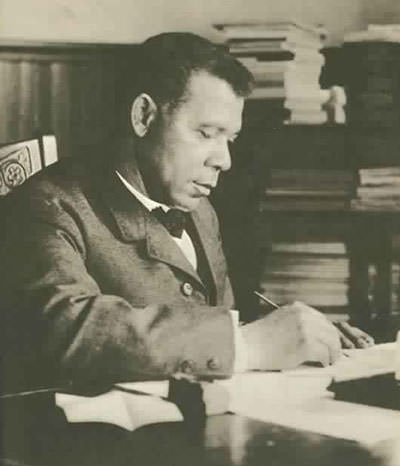
#2 HE PLAYED A KEY ROLE IN DEVELOPING THE TUSKEGEE INSTITUTE
The development of the Tuskegee Institute was a major focus of Washington throughout his life. By the time of his death, the institute had more than 100 well-equipped buildings, around 1,500 students, a faculty of nearly 200 teachers and an endowment of approximately $2 million. The Tuskegee Normal and Industrial Institute was later renamed the Tuskegee University. Today, it is home to over 3,100 students from the U.S. and 30 foreign countries. Moreover, the Tuskegee University was ranked among the best 379 colleges and universities by The Princeton Review in 2018. Apart from the Tuskegee Institute, Washington helped raise substantial funds for the establishment and running of hundreds of small community schools and institutions for the higher education of blacks.

#3 HE HELPED SECURE HUGE DONATIONS FOR THE EDUCATION OF AFRICAN AMERICANS
Booker T. Washington was in contact with numerous well-known entrepreneurs and philanthropists including William Howard Taft, John D. Rockefeller and Collis P. Huntington. He used these contacts to get large donations to aid the African American community. These donations helped in the establishment of countless small rural schools, under programs that continued many years after his death. Moreover, Washington had an exceptionally close friendship with millionaire industrialist and investor Henry H. Rogers, one of the richest men in the United States. Through Washington, Rogers secretly funded operations for 65 small country schools dedicated to the education of African Americans. Rogers also gave substantial sums of money for the support of Tuskegee and Hampton institutes.
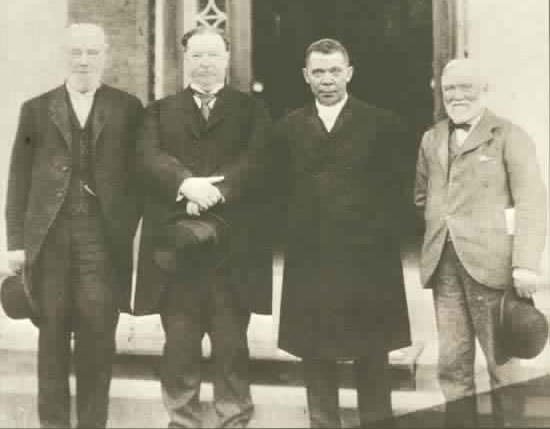
#4 HE WAS ONE OF THE MOST PROMINENT LEADERS OF AFRICAN AMERICANS
By securing large donations to uplift the black community, and through his contacts and powerful speeches, Booker T. Washington became the dominant leader in the African American community from 1890 till his death in 1915. He mobilized middle-class blacks, church leaders and white philanthropists to build the economic strength of the African American community by focusing on self-help and schooling. Owning to his acute political skills and his dedicated work towards building a nationwide network to improve the condition of the black community, Washington became known in the public as the “Wizard of Tuskegee”. Even his opponents accepted the prowess of his personal network and called it the “Tuskegee Machine”.
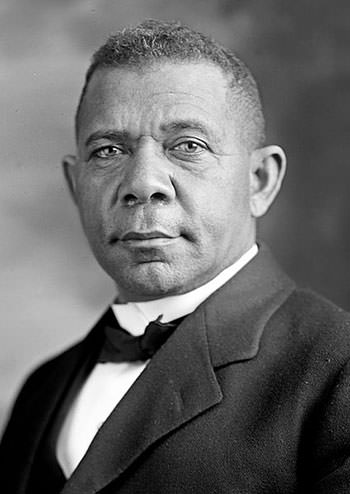
#5 HIS ATLANTA COMPROMISE SPEECH WAS VIEWED AS A REVOLUTIONARY MOMENT
On September 18, 1895, Washington gave a powerful speech which became the basis for the Atlanta Compromise, an agreement that Southern blacks would work and submit to white political rule, while Southern whites would guarantee that blacks would receive basic education and due process in law. Though the Atlanta Compromise was later criticized for being too accommodating to the demands of the white community, it helped secure basic educational rights for numerous African Americans. Also, at the time his speech was delivered, it was viewed as a “revolutionary moment” by most African Americans and whites across the country.
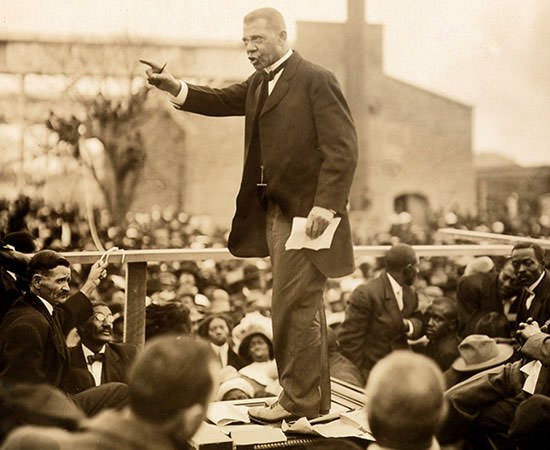
#6 HE SECRETLY SUPPORTED ELIMINATION OF SEGREGATION AND VOTING RESTRICTIONS
The freedom movement of the nineteenth century needed to be aligned with the overhauling economic and intellectual framework, resulting from the abolishment of slavery. Washington went on to play a pivotal role in this since he was held in high regards by the business-oriented conservatives, both black and white. While publicly Washington stuck to his stance of the Atlanta Compromise, he secretly agreed to contribute substantial funds to counter the numerous legal challenges faced by African Americans including voting restrictions and segregation.
#7 HIS AUTOBIOGRAPHY WAS A BESTSELLER
Booker T. Washington was a widely read writer. In the period from 1900 to 1912, he published five books: The Story of My Life and Work (1900); Up From Slavery (1901); The Story of the Negro (1909); My Larger Education (1911); and The Man Farthest Down (1912). His second autobiography Up From Slavery became a bestseller and had a major effect on the African American community. The book gives a detailed account of the problems faced by the African American community during his era and how Washington himself faced the obstacles in his life, rising from the position of a slave child to pursue his education at the New Hampton Institute. Up From Slavery was included in the Modern Library’s list of the 100 best books to read of the 20th Century.

#8 HE FOUNDED THE NATIONAL NEGRO BUSINESS LEAGUE
In 1900, Booker T. Washington founded the National Negro Business League (NNBL) in Boston, Massachusetts. The aim of the organization was “to promote the commercial and financial development of the Negro”. It was “composed of negro men and women who have achieved success along business lines”. The NNBL was formally incorporated in 1901 in New York and it established 320 chapters across the United States. By the time of the death of Washington in 1915, the organization had more than 600 chapters in 34 states. After 1915, it was headed by Washington’s successor at Tuskegee, Robert Russa Moton. NNBL remains active to this day.
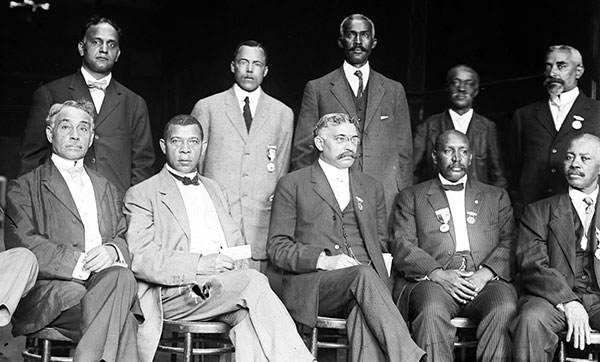
#9 HE RECEIVED NUMEROUS HONORS
In 1896, Harvard University granted Washington an honorary master’s degree to acknowledge his contributions to American society. He also received an honorary doctorate from Dartmouth College in 1901. In 1922, a Booker T. Washington monument was dedicated at the center of the Tuskegee University. It carries an inscription that reads, “He lifted the veil of ignorance from his people and pointed the way to progress through education and industry.” Also, numerous high schools, middle schools and elementary schools across the United States have been named after Booker T. Washington to recognize his contribution as an educationalist.
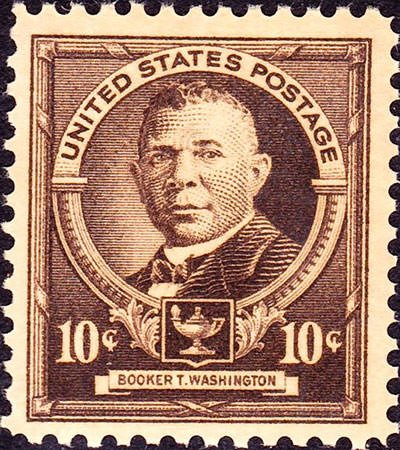
#10 HE WAS FIRST AFRICAN AMERICAN TO BE DEPICTED ON A U.S. POSTAGE STAMP
On April 7, 1940, Booker T. Washington went down in history as the first African American to be depicted on a United States postage stamp. In 1942, the liberty ship Booker T. Washington was named in his honor, making it the first major ocean going vessel to be named after an African American. In 1946, he featured on the Booker T. Washington Memorial Half Dollar, which was minted by the United States until 1951. This made him the first African American to be depicted on an American coin. On October 19, 2009, the West Virginia State University (WVSU) dedicated a monument to Booker T. Washington in Malden.


Booker T was amazing!
When anybody puts their minds to something they can accomplish amazing things even from the poorest beginnings raised by single mom in total poverty.
that’s a citation, Jimma we are on lockdown come up here